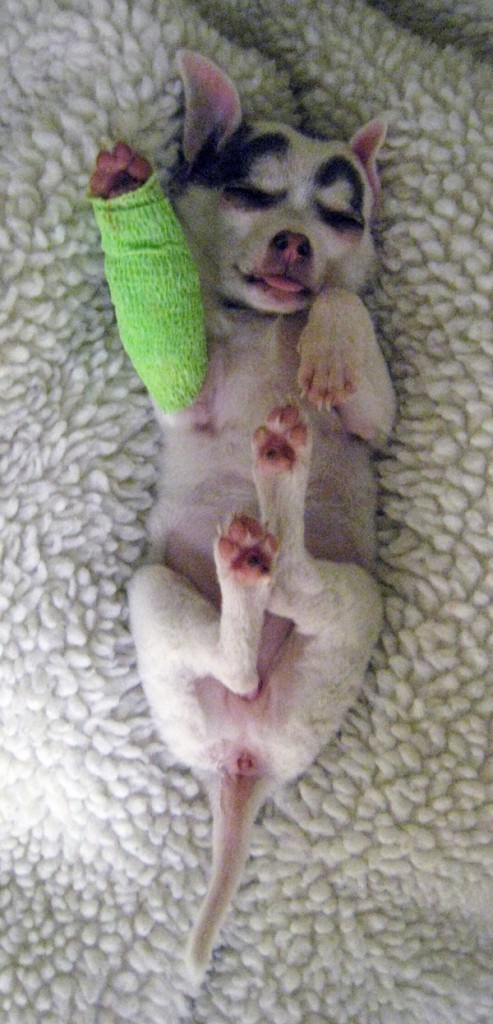Pain Management
There are many ways we can help our older pets live longer, happier, and more comfortable lives in their later years. Adjusting the environment in the home, diet modifications/weight loss, and pain management are just a few of these.

There are many forms of pain management available for pet owners. Some are as simple as giving a pill as needed for the days your pet “over-does it” or your dog may require daily medication to remain comfortable and active. Just like humans, some pets may not tolerate some oral medications or owners would rather try other modalities before progressing towards daily medications.
Acupuncture is another modality available for pets. Again, like humans, some pets do exceptionally well with acupuncture. Others it has no effect.
Food supplements and nutraceuticals could help some pets also. For example, there are recent findings that omega fatty acids can reduce inflammation in dogs. There are some herbal remedies that may also help pets with inflammation. ALWAYS contact your regular veterinarian BEFORE starting food supplements and herbal remedies. What may be good for humans, may INTERFERE with your pet’s chemotherapy treatments or be toxic to the liver or kidneys (to the point of death).
Diet Modifications
Thirty percent of our nation’s dogs are overweight. Carrying extra weight is hard on the joints, plain and simple, whether human or pet. In 2002, Purina published a Life Span Study gathering information from 1987 through 2001. The researchers found that the median age at which 50% of the dogs required treatment for certain chronic health conditions was 12.0 years among the lean fed dogs, compared to 9.9 years for the control group.
Discuss your pet’s weight with your regular veterinarian. Your veterinarian can recommend the best diet for you pet’s weight management or weight loss.
Environment
It was funny watching the dog slide on the carpet in the hallway as a puppy. It was funny watching the kitten launch for the back of the couch and then claw her way to the top. Now though, that slick surface in the home, with the even slicker rug on top of it, may be a concern for your dog. Does he slip often when walking on surfaces? The cat would love to get back into the windowsill and soak up the sun, but she can’t jump that high any more without falling or completely missing the perch. Little changes in the home can help our elderly pets: carpeted stairs to windowsills or beds, backing on rugs so they don’t slide on the wood floors, and so on.
If you would like to schedule a quality of life exam for your dog or cat, contact Dr Fair for more information.
